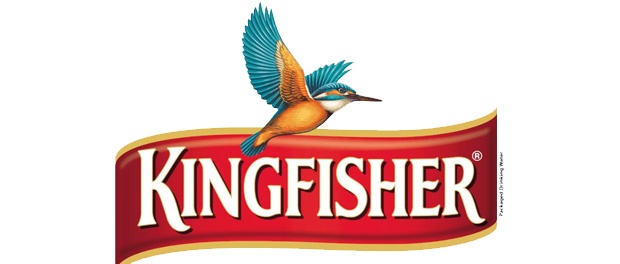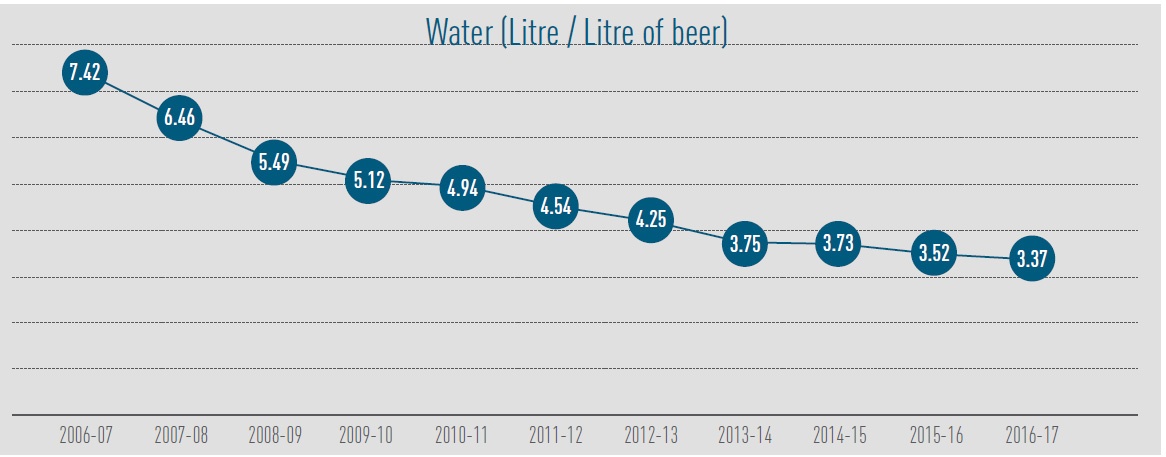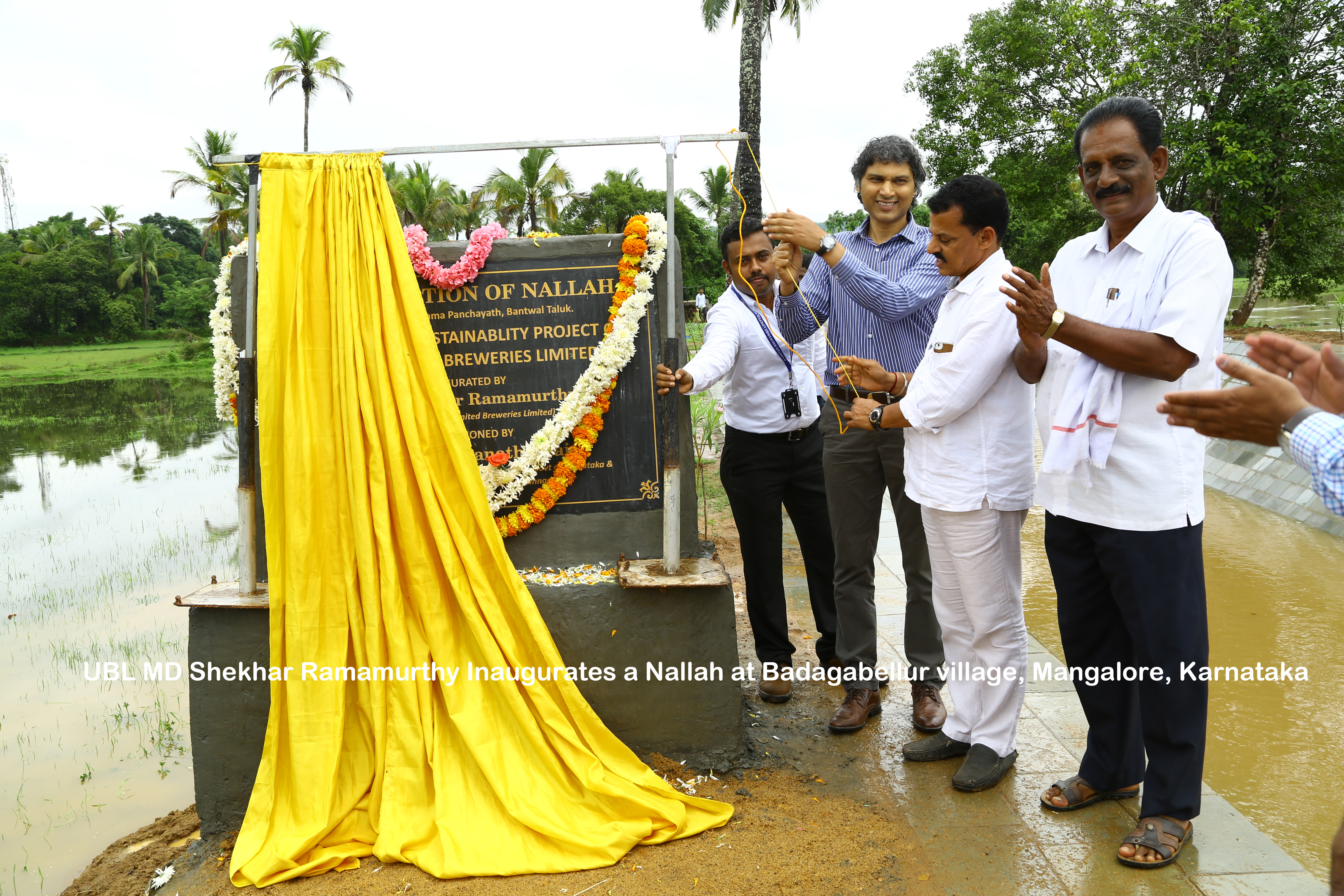The maker of the India’s popular Kingfisher beer has brought down the water it needs to brew a liter of beer from nearly 7 liters ten years ago to only 3.5 liters today. “Globally, water consumption for making beer is 4 liters today. We are striving hard to remain below the global average,” Shekhar Ramamurthy, MD, United Breweries Limited (UBL), said during a chat with Benedict Paramanand, Editor of SustainabilityNext, proudly.
He didn’t stop there. “We have also progressed well both in technology application and in how we practice sustainability. In many ways we are ahead of our peers in the country. We use green solid fuel as part of our sustainability initiative, while European firms are mandated to use natural gas. I would like to believe that we have achieved great scales in Sustainability and CSR.”
The Bengaluru-headquartered company says it uses the four Rs (reduce, recycle, reuse, recharge) policy vigorously in its 21 breweries. Since the places these breweries are located are water scarce sustainability has become a necessity rather than a choice.
Water scarcity faced by communities around its breweries has given UBL a ready need to work on. It’s understandable if it took up water conservation and recharge projects in Punjab, Rajasthan and Haryana, but surprisingly even rain- drenched states like Kerala and Karnataka need support. In Kerala it worked on a lake rejuvenation project that helped farmers grow their third crop while in Mangalore, repair to a canal got famers to plan their second crop.
Like many Indian businesses, UBL too started taking the theme ‘sustainability is good for business’ seriously from 2005 – high oil prices acting as a trigger. “Sustainability should be good both for top line and bottom line. If it’s not, then its charity,” Mr. Ramamurthy concurs. Mr. Ramamurthy has had a long stint in UBL since 1999. He rose to become the managing director in August 2015.
UBL has plans to be water positive by 2025. “Whatever freshwater we use we want to put back for productive use. Right now our percentage is close to 40% through rain water harvesting and adopting water bodies around our breweries. In 2015 we set the target of 100% water neutral and we are doing rapid progress. Most likely we will achieve 100% before that,” he said.
UBL has also been taking up primary health and primary education projects on a supportive role in villages within 10 kilometer radius of its breweries. It has taken up renovating dilapidated government schools in Rajasthan. It’s proud of its mini-science centers it has set up in Mysore.
90% Renewable Energy in Karnataka
Renewable energy from solar and wind is a big draw in India now with the cost of a kilowatt hour plummeting over 70% in the last 5 years. 15% of UBL’s energy needs are currently met by RE across India and is 90% in Karnataka. It largely buys through third party sources through open access on the grid. Mr. Ramamurthy cites policy restraints inhibiting UBL from increasing RE share. States like Maharashtra and Telangana do not allow open access yet unlike progressive states like Karnataka and Tamil Nadu.
UBL plans to take its RE composition closer to 50% in 3 years. If all the states offer open access the RE percentage could be higher. RE’s impact on UBL’s electrical energy cost is as high as 15%. With biomass cost half to one third compared to furnace oil, sustainability strategy has already given UBL substantial business edge.
Management Trainees for CSR
UBL knows that Sustainability has a people’s side too. It’s working on taking the message of the risk of drinking and driving beyond the general public to truck drivers. It ran a national campaign on the eve of the 2018 New Year with the Times of India on the theme ‘Enjoy Responsibly’.
In an effort to imbibe empathy towards communities with which it works UBL has made one month CSR stint compulsory for all its management trainees. This means they have to live in villages around their breweries and implement projects. “This has been a big hit. They come back totally blown,” Mr. Ramamurthy said. He is contemplating an employee volunteering program shortly.
Like many responsible businesses, UBL too is striving to be seen as a company with a purpose as it believes the youth today care about it. It’s working on a plan on how their brands’ are about winning hearts.
India’s experience with the 2% CSR norm has so far been mixed. Many are still struggling because of their difficulty in delinking CSR and charity. Even the government appears confused. “Sometimes we get request for supporting projects outside our domain like installing CCTV cameras for urban safety,” Mr. Ramamurthy rues while saying that overall the progress has been good because companies are now forced to think about how they could be responsible corporate citizens.
Interestingly, UBL spends closer to 4% of its net profits on CSR and Sustainability. “We ought to have passion and must do it with commitment. We don’t cap our cost because it is 2%,” he said like a leader who means what he says.
With nearly half of UBL’s Rs. 10,228 crore sales going to excise duty in the year ending March 2017, leaving a paltry net profit of Rs. 229 crore, it’s no doubt UBL’s and that of other beverage firms’ contribution to running this country appears like a big CSR.
UB Corporate Responsibility Report 2016-17
http://unitedbreweries.com/Pdf/CSR/CSR%20Report%202017.pdf













Without prejudice:
These sustainable water management and RE and responsible corporate citizens projects run on Vijay Mallya’s robbing INR 900 crore from the Banks in India which is not sustainable for the Citizens in India and UBL’s irresponsible corporate citizenship.?